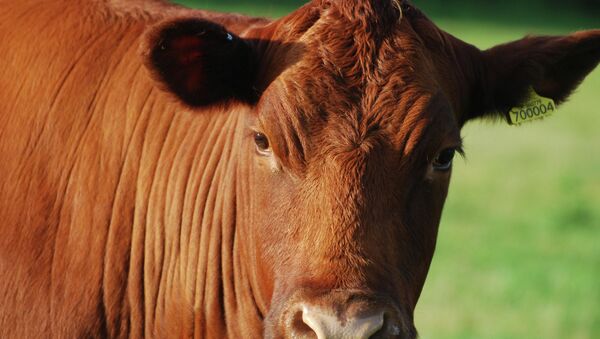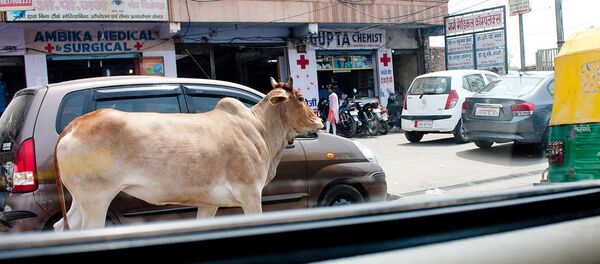These 'supercows' were once the largest land mammals in Europe, roaming the continent for some 250,000 years before becoming extinct in 1627 due to habitat loss and overhunting. In 2008, geneticists began breeding auroch descendants with similar cow breeds, in an attempt to rejuvenate areas once maintained by the auroch’s grazing.
Ronald Goderie of the Tauros Project, which breeds cattle and horses for ecological purposes, told CNN that researchers found that they could "produce animals far closer to the aurochs than we would have expected."
Goderie believes that the seventh generation of the new breed will be the closest to the original auroch’s size.
The Project notes on its website that, "…the Aurochs also played a key role for Europe's biodiversity, greatly impacting on the vegetation where it lived. Hundreds of plant and animal species developed in co-evolution with the vast herds of these Europe's heaviest land mammals and other large grazers."
Scientists hope that the beasts will become habituated within the ecosystem, resuming their historical role as natural "gardening services" that maintain the land for other wildlife.
Spain, Portugal, Croatia, Romania and the Czech Republic all have seen promising results from having fourth-generation cows introduced. Goderie said that "We see progress not only in looks and behavior but also in de-domestication of the animals," pointing out that one herd has adapted enough to defend themselves against wolves, one of their main predators.
An International Union for the Conservation of Nature representative stated that it is not clear "whether primarily wetland forests like the aurochs used to inhabit still exist, whether it could negatively impact wild or domestic plants or animals, and if it might endanger people."
In 2015, British farmer Derek Gow had to kill half of his stock of an aggressive breed after they repeatedly tried to kill him. “The ones we had to get rid of would just attack you any chance they could. They would try to kill anyone. Dealing with that was not fun at all. They are by far and away the most aggressive animals I have ever worked with,” he told the Independent.
The Heck breed owned by Gow were the result of a Nazi animal-breeding program using Spanish fighting cattle.




